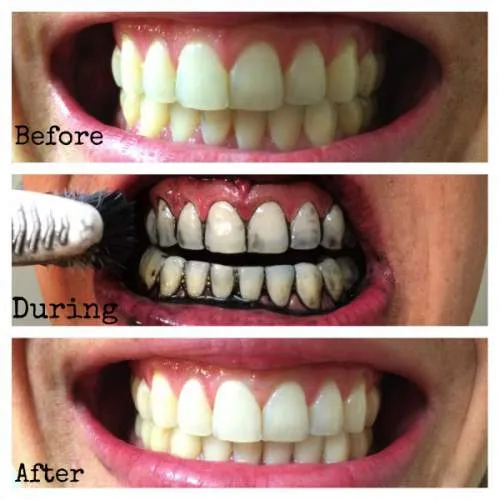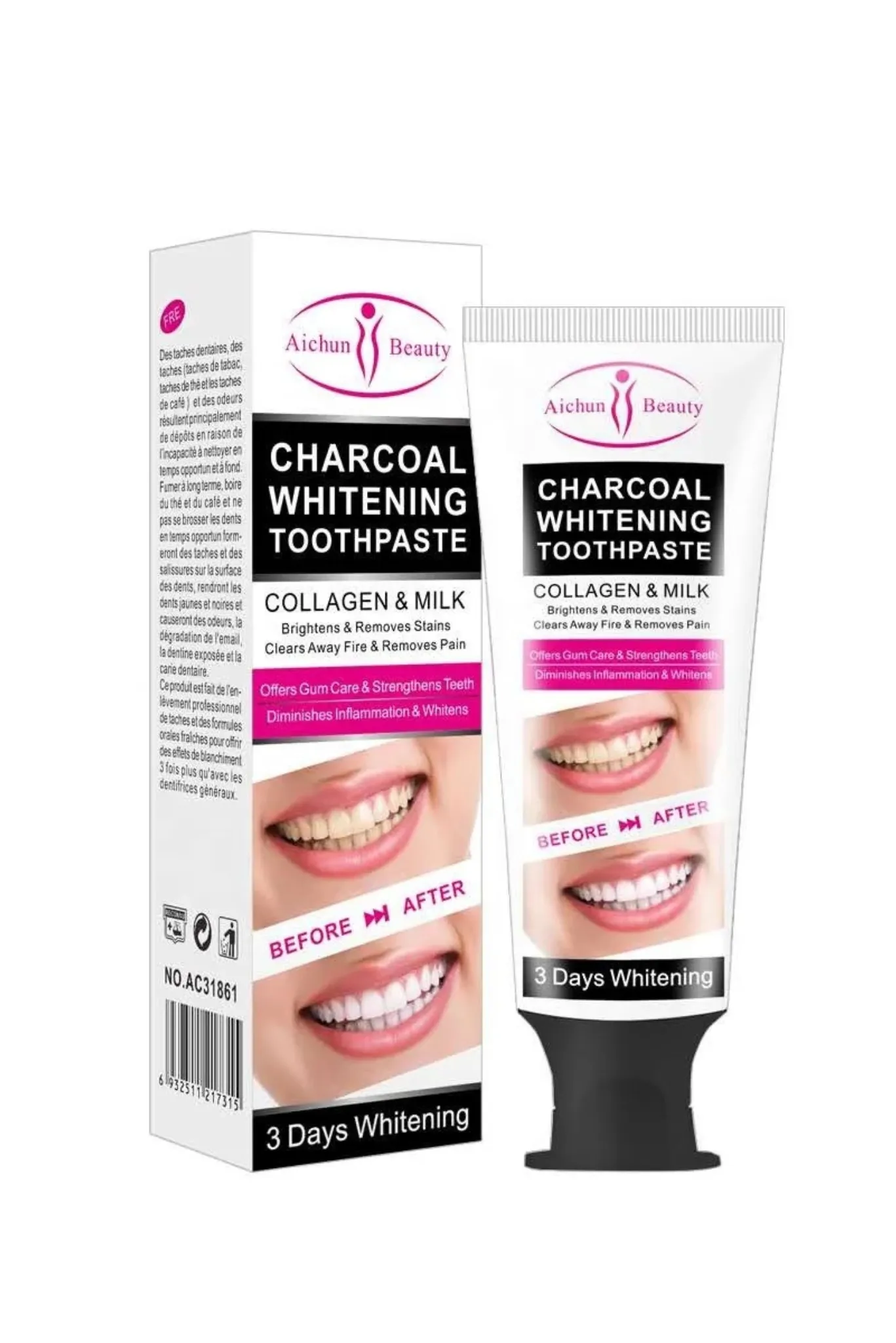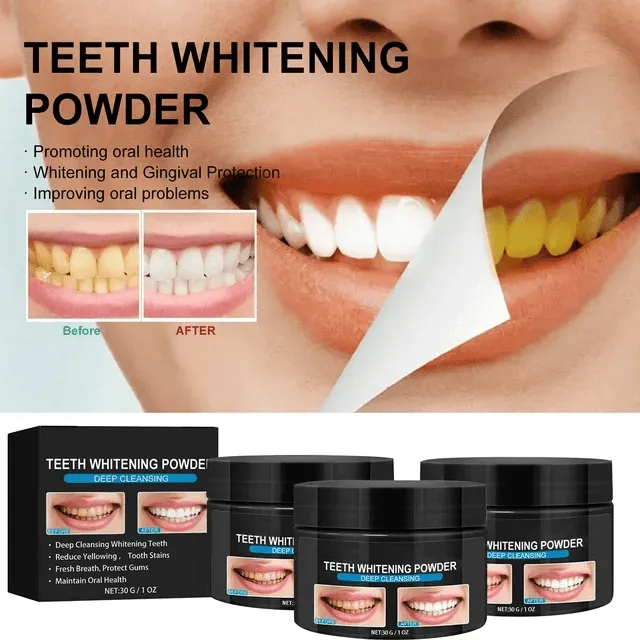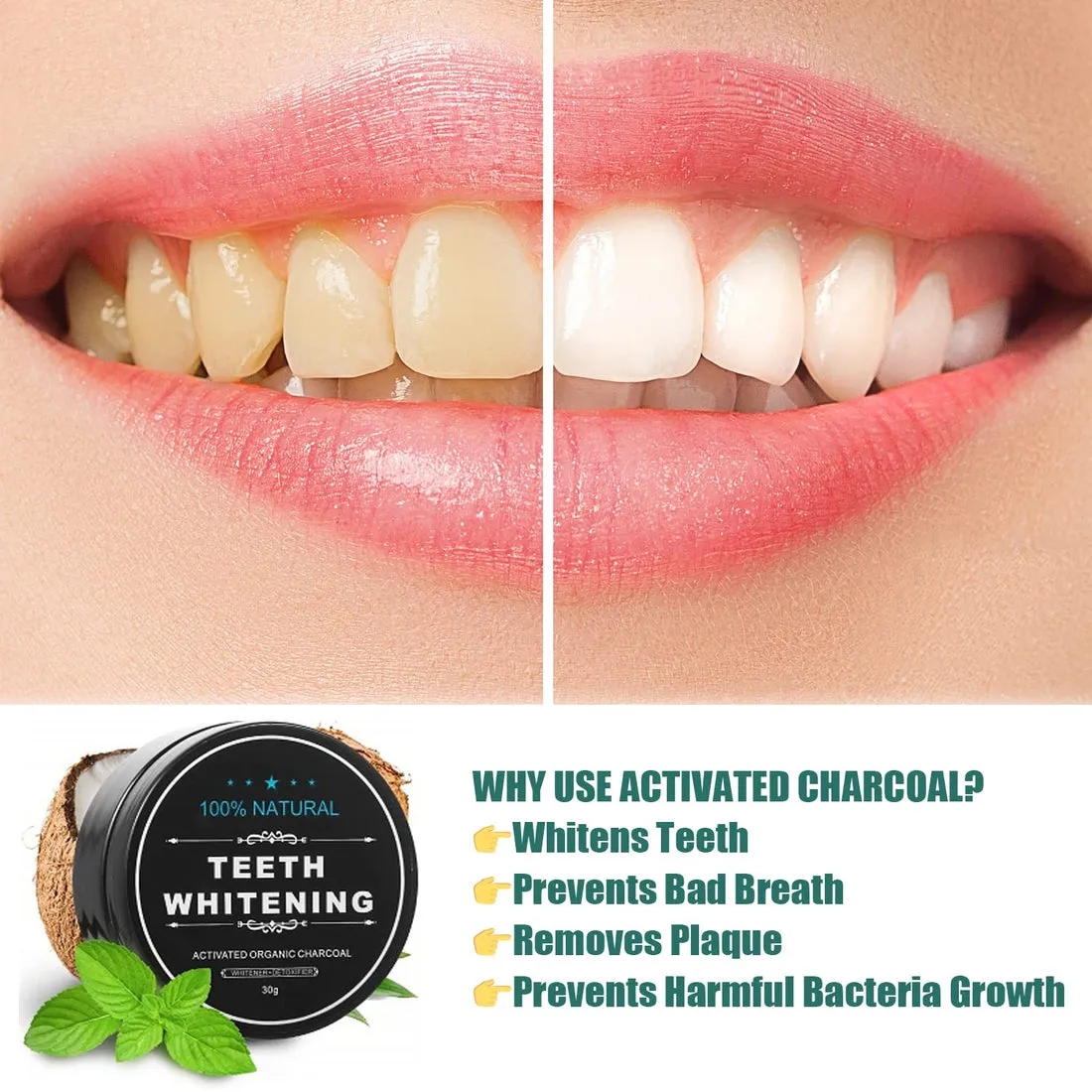What is Charcoal Teeth Whitening
Charcoal teeth whitening has gained significant popularity as a natural method for achieving a brighter smile. It involves using activated charcoal, a fine black powder typically derived from sources like coconut shells, wood, or bamboo, to remove stains and surface discoloration from teeth. This method has become a sought-after alternative to traditional teeth whitening treatments. The core principle behind charcoal teeth whitening is its absorbent nature. Activated charcoal possesses a porous structure that effectively traps and eliminates stains, bacteria, and other impurities from the teeth surface. This process can lead to a noticeably whiter and cleaner appearance, making it a popular choice for individuals looking for an affordable and accessible oral care solution. Furthermore, the rise of charcoal teeth whitening reflects a growing trend towards natural and holistic approaches to health and beauty, with many consumers seeking alternatives to chemical-based products.
The Science Behind Charcoal Teeth Whitening
The science behind charcoal teeth whitening revolves around the unique properties of activated charcoal. This substance is not just ordinary charcoal; it undergoes a special process of activation, which significantly enhances its ability to absorb impurities. The activation process involves heating the charcoal in the presence of a gas, creating a highly porous structure. This porous structure increases the surface area of the charcoal, making it extremely effective at attracting and binding to various substances. When used in teeth whitening, the activated charcoal acts as a gentle abrasive. As you brush, it helps to remove surface stains caused by substances like coffee, tea, wine, and tobacco. These stains are trapped within the charcoal’s pores and are subsequently rinsed away. However, it is crucial to understand that charcoal teeth whitening primarily addresses surface stains and does not alter the natural color of the teeth. The effectiveness can vary depending on the type and severity of the stains, and the frequency of use. It’s essential to use it properly to prevent potential damage.
How Coles Charcoal Works for Whitening

Coles charcoal teeth whitening products typically function through a similar mechanism as other activated charcoal products. The primary action involves the charcoal’s absorbent properties, where it traps and removes stains from the teeth surface. When you brush with a charcoal-based product from Coles, the charcoal particles gently abrade the enamel, helping to lift away stains caused by food, drinks, and other factors. The charcoal’s porous nature then captures these stain particles, which are rinsed away during brushing. This process primarily targets external stains and does not penetrate the tooth’s enamel to change its intrinsic color. The effectiveness of Coles charcoal in whitening teeth can vary depending on the type of charcoal used, the concentration of the product, and the frequency of use. Users often report seeing some improvement in the brightness of their teeth. However, the results are typically less dramatic than those achieved through professional whitening treatments. Consistent use, along with proper oral hygiene practices, can contribute to maintaining a brighter smile.
Coles Charcoal Ingredients
The ingredients in Coles charcoal teeth whitening products are typically straightforward, focusing on activated charcoal as the primary active ingredient. The charcoal is usually derived from sources like coconut shells, wood, or bamboo, which are heated to create the activated form. Besides charcoal, these products often contain a blend of other ingredients designed to enhance the overall experience and effectiveness. Common additives include binders, which help the charcoal particles adhere to the teeth and enable the product to form a paste or powder. These binders can be natural, such as xanthan gum, or synthetic. Additionally, some Coles charcoal products may include flavoring agents, such as peppermint or spearmint, to improve the taste and promote fresh breath. Certain products may also contain mild abrasives, like calcium carbonate, to assist in stain removal. It’s also important to note that some formulations may include fluoride, known for its strengthening effects on tooth enamel, enhancing its protective capabilities and preventing the growth of bacteria.
Is Coles Charcoal Safe for Your Teeth
The safety of using Coles charcoal teeth whitening products is a subject of ongoing discussion among dental professionals. While activated charcoal is generally considered safe for use, its abrasive nature can pose risks if not used carefully. The primary concern is the potential for excessive abrasion, which can wear down tooth enamel over time. Enamel is the protective outer layer of the teeth, and once it is damaged, it does not regenerate. Prolonged or aggressive brushing with charcoal can lead to increased tooth sensitivity, as the underlying dentin becomes exposed. The charcoal’s abrasiveness may also contribute to gum recession, where the gums pull back, exposing more of the tooth root. Therefore, it’s crucial to use Coles charcoal products cautiously and follow the manufacturer’s instructions precisely. It is recommended to use a soft-bristled toothbrush and brush gently to minimize the risk of enamel damage. Consulting with a dentist can help determine if charcoal teeth whitening is suitable for your specific dental condition and to receive personalized guidance on its safe usage. Always ensure that the product is designed for oral use.
Possible Side Effects of Using Coles Charcoal

Using Coles charcoal teeth whitening products, although popular, comes with potential side effects. A common side effect is increased tooth sensitivity, which arises from the abrasive nature of charcoal. This can wear down the enamel over time, exposing the dentin and causing sensitivity to hot or cold foods and beverages. Another potential issue is gum irritation or recession, especially if the product is used too aggressively. The abrasive charcoal particles may irritate the gums, leading to inflammation or recession, which exposes more of the tooth root, increasing sensitivity. Additionally, overuse of charcoal products can lead to enamel erosion, making teeth more vulnerable to decay and discoloration. Some users may also experience temporary staining or a darkening of the gums due to the charcoal particles. The aesthetic issues include an uneven appearance if the charcoal is not used consistently or if the stains are localized. While charcoal itself is generally not toxic, accidental ingestion of large amounts could lead to mild gastrointestinal upset. Therefore, it’s crucial to use charcoal products with caution and consult a dentist if any adverse effects arise.
How to Use Coles Charcoal for Whitening
Using Coles charcoal teeth whitening products correctly is essential to maximize their benefits while minimizing potential risks. The recommended method typically involves applying a small amount of the charcoal powder or paste onto a soft-bristled toothbrush. Wet the toothbrush first to help the charcoal adhere better. Begin by gently brushing your teeth in small, circular motions for about two minutes. Avoid applying excessive pressure, as this can damage the enamel. Focus on cleaning the entire surface of each tooth, ensuring that you reach all areas to remove stains. After brushing, thoroughly rinse your mouth with water to remove any remaining charcoal particles. It is recommended to follow up with regular toothpaste to clean the teeth properly and remove any charcoal residue. This can help remineralize the enamel and freshen your breath. For optimal results, most manufacturers suggest using charcoal teeth whitening products one to two times per day. However, it’s essential not to overuse the product, as excessive use can cause harm. Always consult with your dentist for personalized advice regarding your oral health. Store the product in a cool, dry place, and ensure the container is tightly sealed to maintain its effectiveness.
Coles Charcoal Teeth Whitening Effectiveness
The effectiveness of Coles charcoal teeth whitening can vary from person to person, depending on a range of factors. While many users report some improvement in the brightness of their teeth, the results typically aren’t as dramatic as those achieved through professional whitening treatments. Coles charcoal primarily targets surface stains, making it effective for removing discoloration caused by coffee, tea, wine, and tobacco. However, it does not change the intrinsic color of the teeth. For individuals with significant staining or deep discoloration, the effects might be less noticeable compared to those with milder stains. The effectiveness of charcoal whitening is also affected by the frequency and consistency of use. Consistent application, following the product’s instructions, is crucial to achieving the desired results. Other factors include the type of charcoal used, the concentration of the product, and the presence of any additional whitening agents. It is also essential to consider that charcoal whitening’s impact is limited to the surface of the teeth. It may not be effective for stains that penetrate the enamel or for those caused by internal factors. The overall results are typically more subtle and less long-lasting compared to professional treatments.
Coles Charcoal Teeth Whitening Cost

The cost of Coles charcoal teeth whitening products is generally quite affordable, making it an accessible option for those looking to brighten their smiles. Compared to professional teeth whitening treatments, which can cost several hundred dollars, charcoal-based products are considerably less expensive. The price of charcoal teeth whitening products from Coles usually falls within a budget-friendly range, often available for under $20. This makes it an attractive choice for individuals looking for an economical alternative. The cost-effectiveness of Coles charcoal products contributes to their widespread popularity. While the initial investment is relatively low, it’s important to consider the long-term costs. Since the effects of charcoal whitening are often less dramatic and less durable than professional treatments, frequent use may be required to maintain the desired results. This means continuously purchasing the product, which adds to the overall cost over time. However, even with repeated use, the cumulative expense is still likely to be far lower than the cost of professional whitening services. Therefore, the cost of Coles charcoal teeth whitening products makes it a practical choice for those seeking an affordable way to improve the appearance of their teeth.
Alternatives to Coles Charcoal Teeth Whitening
There are several alternatives to Coles charcoal teeth whitening, offering different approaches to achieve a brighter smile. One option is to use over-the-counter teeth whitening products, such as whitening strips, gels, and toothpastes. These products typically contain hydrogen peroxide or carbamide peroxide, which are active ingredients that help to bleach the teeth. They are generally more effective than charcoal at changing the intrinsic color of the teeth, though the results vary depending on the product’s strength and usage. Another alternative involves professional teeth whitening treatments performed by a dentist. These treatments often use higher concentrations of bleaching agents and can deliver more dramatic and long-lasting results. Professional options also include custom-fitted trays for at-home whitening or in-office procedures. For a more natural approach, some people opt for oil pulling, a traditional Ayurvedic practice that involves swishing oil (usually coconut oil) in the mouth to remove bacteria and improve oral health. While oil pulling does not whiten teeth in the same way as charcoal or bleaching products, it may help to reduce plaque and improve the overall appearance of the teeth. Furthermore, maintaining good oral hygiene practices, such as regular brushing, flossing, and professional cleanings, is an important part of achieving a healthy and brighter smile.
